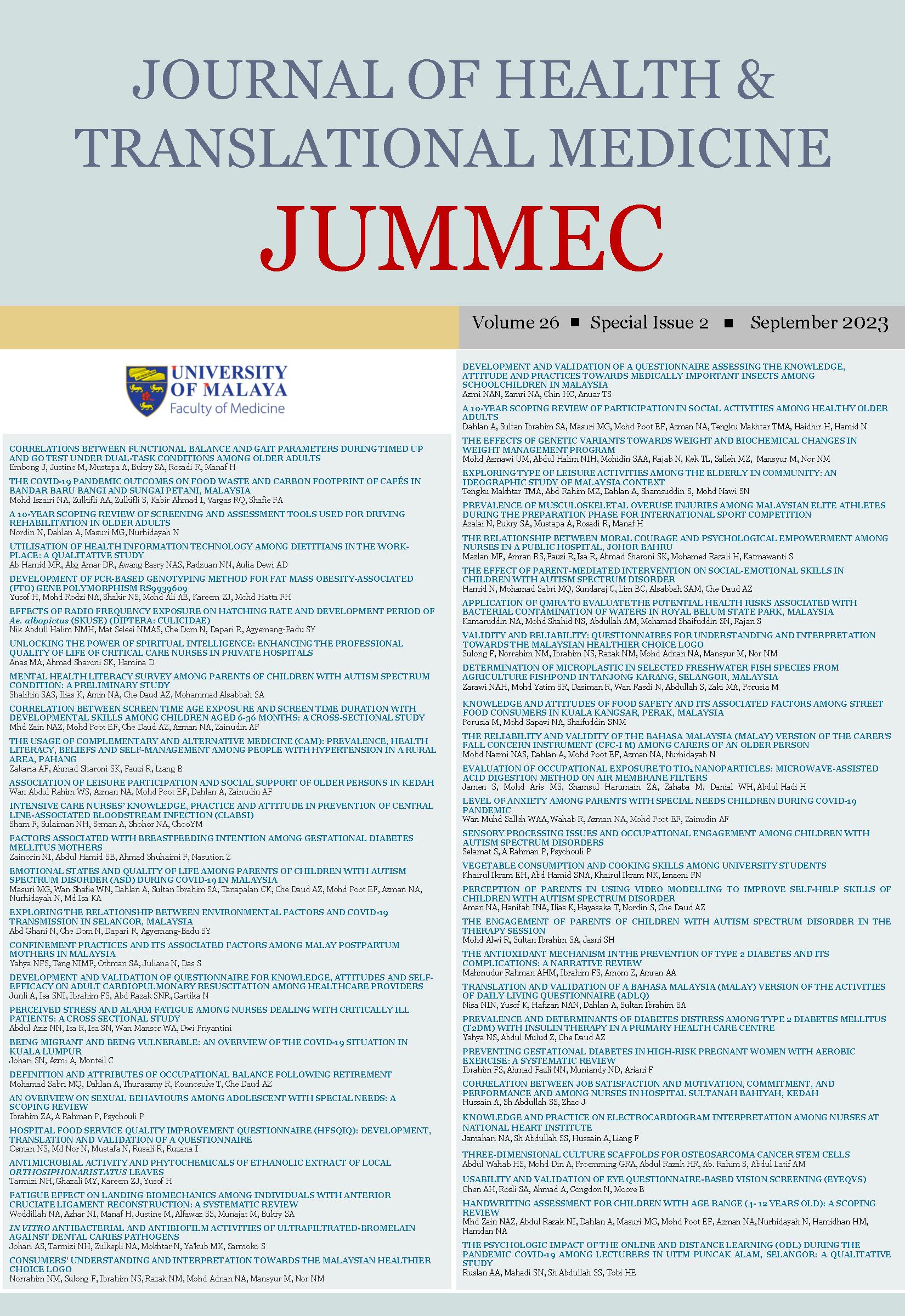DEFINITION AND ATTRIBUTES OF OCCUPATIONAL BALANCE FOLLOWING RETIREMENT
Received 2023-07-07; Accepted 2023-09-02; Published 2023-09-15
DOI:
https://doi.org/10.22452/jummec.sp2023no2.20Keywords:
Ageing, Occupational Balance, Quality of Life, RetirementAbstract
After retirement, the activities and roles of retirees change as their previously dominant activity and productivity is no longer a part of their routine. This transition can affect each retiree differently, and the risk of non-communicable diseases among retirees becomes more apparent due to lifestyle changes. Achieving occupational balance is crucial for successful ageing, life satisfaction, and subjective well-being in healthcare settings. However, occupational balance is defined and described differently across diverse populations. This study conducted a two-round Delphi study among 18 occupational therapy experts to identify the definition and attributes of occupational balance following retirement in Malaysia. The first round involved open-ended interviews exploring the definition and attributes of occupational balance, followed by a second round using close-ended questions to achieve experts' consensus. The study concluded that occupational balance is defined as an optimal engagement in meaningful and desired occupations, including self-care, productivity, and relaxing activities, according to the retirees' routines and contexts. The attributes were divided into four main groups, and 16 out of 21 statements achieved more than 80 per cent agreement among Malaysian OT experts. The study pioneers fundamental occupational therapy research central to Malaysian perspectives and contributes to healthcare research by exploring possible constructs associated with occupational balance following retirement. Future studies are necessary to explore the influence of each attribute on occupational balance.
Downloads
Downloads
Published
Issue
Section
License
All authors agree that the article, if editorially accepted for publication, shall be licensed under the Creative Commons Attribution License 4.0 to allow others to freely access, copy and use research provided the author is correctly attributed, unless otherwise stated. All articles are available online without charge or other barriers to access. However, anyone wishing to reproduce large quantities of an article (250+) should inform the publisher. Any opinion expressed in the articles are those of the authors and do not reflect that of the University of Malaya, 50603 Kuala Lumpur, Malaysia.


